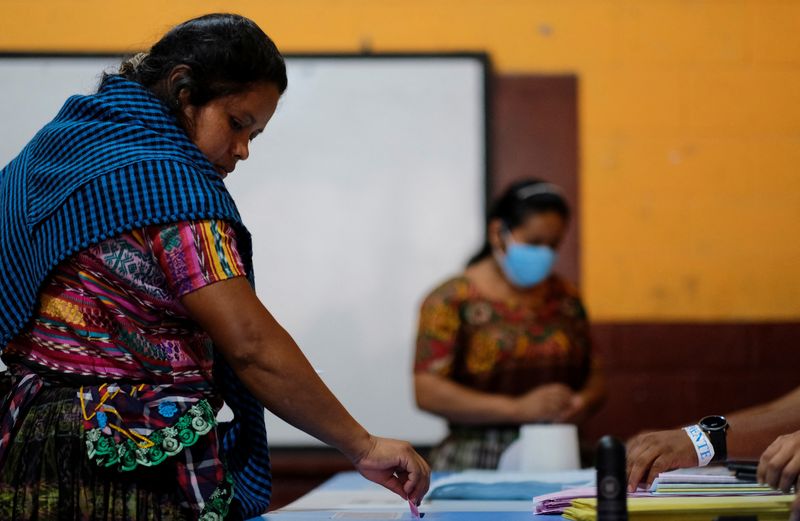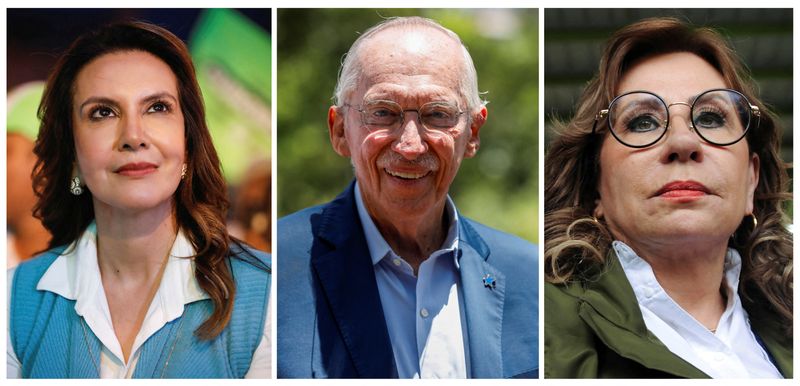By Sofia Menchu and Diego Oré
GUATEMALA CITY (Reuters) - Guatemalans voted for a new president on Sunday in an election headed for an August run-off, with early results putting the center-left in the lead but also appearing to show widespread voter frustration over the exclusion of an early favorite.
The contest, dominated by international concern over corruption, will have to be settled in a second round of voting with leading candidate with former first lady Sandra Torres on track to fall well short of the 50% plus one vote needed for outright victory.
Torres is up against more than 20 candidates, including Edmond Mulet, a career diplomat, and Zury Rios, daughter of the late dictator Efrain Rios Montt.
With 40% of votes counted, Torres' center-left National Unity of Hope (UNE) had 15% of the vote, with Semilla, another left-of-center party, on 12.2%, preliminary results showed.
But with nearly one in four ballots either spoiled or left blank, Guatemalans expressed discontent at the electoral process and the decision to bar early front-runner, businessman Carlos Pineda. Pineda urged supporters to spoil their ballots after he was ruled ineligible.
Opinion polls had not suggested that Semilla's candidate, Bernardo Arevalo, an ex-diplomat and son of former president Juan Jose Arevalo, would make the second round.
Semilla's previous presidential campaign was fronted by former attorney general and anti-corruption campaigner Thelma Aldana, who was ultimately barred from running.
The race to succeed conservative President Alejandro Giammattei, who is limited by law to one term, has been overshadowed by a court ruling to block four candidates, including Pineda.
The United States and the European Union criticized the exclusion of Pineda, who called the decision "electoral fraud."
"We do not see a process that is governed by international standards, but rather one where arbitrary criteria are used," said Carolina Jimenez, president of think tank Washington Office on Latin America (WOLA). "That is tremendously serious."
Meanwhile, unrest in the town of San Jose del Golfo, near the capital, forced the postponement of voting there to August, Supreme Electoral Tribunal official Irma Palencia said.
Stakes in the election are high, given deteriorating standards of transparency and human rights in recent years, as well as poverty, corruption and violence.
"I have always voted for Sandra Torres because she helped my (community) a lot (as first lady). She gave money, food and a lot of help to poor people," said Maria Consuelo Ruano, 72.
"I would also feel happy if Mulet goes to the second round," she added. "(He) looks like he's an honest man, different from Giammattei."
Political analysts, however, say a fragmented Congress could hamper candidates from delivering real change.

Polls forecast that Torres, ex-wife of late president Alvaro Colom, who ruled from 2008 to 2012, will likely lose a run-off given her unpopularity in the capital, Guatemala City, home to a high percentage of the electorate.
This is the 67-year-old politician's third run for president. She finished second in the previous two races.
